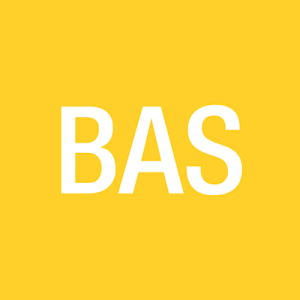This module is responsible for managing and supervising the overall system as well as managing the master data and is linked to all functional areas of the software. The Basic Data Management module provides the definition, management and authorization of basic data such as Material, Customer, Supplier cards or Company, Facility, Warehouse, Cost Centers, Business Centers used in the entire ERP software infrastructure. In this way, easily adaptable, flexible and centralized management for the existing and future structures of the enterprises is ensured, data repetitions are reduced and data consistency is increased.
CHECK TABLES AS THE BASIS OF THE SYSTEM
The Canias-ERP system is based on support tables gathered within the Basic Data Management module. For example, all selection fields for determining material type, document type, supply types, product line or warehouse locations are based on these control tables. Similarly, there are hundreds of support tables in the module.
Changes to support tables take effect immediately: When a support table setting or parameter is created, changed or deleted, the result of that change is immediately visible throughout the system.
Many customer requests can be fulfilled by configuring support tables. In this way, the system enables the needs of different sectors to be met by arranging the support tables in different ways.
MANAGEMENT OF CUSTOMER AND SUPPLIER BASIC DATA
All basic information about suppliers, leads and customers is maintained within this module. Within the Basic Data Management module, it is possible to save many parameters that automatically present relevant information to the user and control their use in all areas of the system. Starting from the creation of customer, supplier and candidate data in customer/supplier basic records, it provides many advantages to the user thanks to its fully integrated structure with other modules.
For example, customers can be classified or customer/price list groups can be set so that a company-specific pricing can be arranged (connection with the Sales Management and Purchasing Management module); Recording of payment and bank information to create case-specific automatic ledger (connection with General Ledger module); Managing the desired number of company addresses, with the possibility of specifying multiple billing and delivery addresses; determination of currency, correspondence language and other standards.
Having a direct link between the different system components and the company address book in the Basic Data Management module offers many other advantages: the ability to assign pre-created ‘Contacts’ to a company or vice versa, to automatically import ‘Contacts’ assigned to a company into the address book available.
In addition, the certificates of the suppliers that we work with can be kept, and thus a healthier supply management can be ensured by being informed about the competencies of the suppliers.
MANAGEMENT OF MATERIAL BASIC DATA
Similar to customer and supplier base data, material base data is also created and managed in this module. The term ‘material’ is used here as a general term for products, semi-finished products, consumables, auxiliary materials, services, spare parts or commercial products. Material Base Data acts as a central record for all ‘material types’ mentioned and is very important for data integrity.
A few examples of the basic configuration properties of a material can be listed as follows:
- Identification of allowed warehouse addresses,
- Determination of material requirement planning data by production or purchasing departments for resupply purposes,
- Saving data for use as default information in other modules if necessary. Data from Service Management, Maintenance Management, Sales Management and Purchasing Management modules, VAT and income account determination indicators in the General Accounting module, pricing information, stock valuation parameters of a material, etc.
- Making quality control definitions in order to carry out the quality control process of the material.
In the Basic Data Management module, the units of measurement to be used for materials are also assigned (Number, meter, hour, pallet, etc.). Here the user can define a relationship between the units of measure for each material (eg One pallet = 100 pieces, One dose = 4 liters). Automatic calculation can be made in line with the generally accepted quantity relations recorded in the control tables (eg 1 ton = 1000 kilograms).
The availability of a material is controlled by the material status (Active, blocked, in design phase, etc.) in the system, and the standard supply channel by the type of supply (such as production, purchasing or contract).
With Material Base Data, all required adaptive structure is provided in Canias-ERP modules. For example, material texts can be defined multilingually in accordance with the intended use in the business (In-house, purchasing, sales, production, etc.). In addition, if the material has codes specific to the customer and/or supplier, it can be assigned on this application. In this way, Material Basic Data can be managed centrally according to the content needed in all Canias-ERP modules.
FEATURE OVERVIEW
- Central configuration
- Easy, purpose-built delegation
- Separating process data and core data within the application
- Setting up and editing all workflows with parameterization in support tables
- Recording different business logics in support tables for each company
- Copy support tables from one company to another
- Batch modification features (eg for material texts)
- Automatic import of exchange rates into the system
- Country specific designations (eg value added tax identification numbers)
- Management of Customer and Supplier data
- Management of Material Base data
- Class information management
- Address book management
- Variant management
- Business Centers management
- Cost Centers management
- Product configurator

